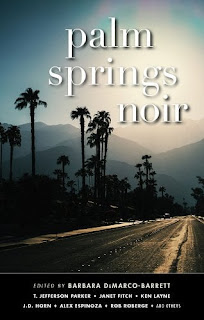By Louise Erdrich
Harper 2021
400 pages Literary
Louise Erdrich owns the bookstore Birchbark
Books in Minneapolis, which specializes in indigenous materials. Her newest
novel takes place in that bookstore, and the major protagonist is Tookie, a bookseller at the store. Louise, herself,
makes an appearance as well as a ghost named Flora, who haunts Tookie every day
at the store.
The first half of the book is a
delight. We learn about how Tookie, an indigenous woman, makes a very stupid
move and ends up in prison for ten years. She reads everything she can get her
hands on while she is in prison, and when she gets released, she gets a job at
Louise’s bookstore. She is really intimidating looking with black eyeliner,
black stompers, a nose ring and eyebrow cuff. She says, “Who would dare not buy
a book from me?”
Tookie is quite an incredible
woman, and the reader is totally drawn to her. Her marriage to Pollux has its
ups and downs. He was the tribal policeman who was involved in her arrest. He says, “You could be anything. You make my
brain boil. You make my heart flip over. Twist in a knot. It’s like you never
learned that our choices get us where we are.” But when she reaches out her
arms to meet his—he slaps handcuffs on her and arrests her. When she is released
from prison, they meet again, fall in love and get married.
Life improves for Tookie and the
reader is drawn into her brilliance as a bookseller, as a wife, and as a
stepmother/grandmother to Pollux’s daughter and her baby. But then the pandemic
hits followed by the murder of George Floyd, just down the street from the
bookstore. The tone of the book changes, and the reader is caught with the ferocity
of life in Minneapolis as it is engulfed in protests. Everyone is scared;
everyone is worried, and the air around the bookstore is filled with tear gas.
The bookstore has closed because
of the pandemic and the protests, so Tookie spends a great deal of time alone
in the store, pulling books from the shelves for online orders. “Everyone who wasn’t out on the streets wanted
to read about why everyone else was out on the streets.” Oh—and Tookie spends a great deal of time fending off Flora, the ghost, who is bound and determined to inhabit
Tookie’s body, mind, and spirit. Flora plays an pivotal role in the plot so I
won’t go into more details about her. The reviewer in the Washington
Post says that “The novel’s ectoplasm hovers between the realms of
historical horror and cultural comedy.”
Interspersed with the crazy plot
is the world of books and bookstores. Tookie really knows her books and is able
to pick the perfect book for her customers. Titles of books are everywhere in
the text—so much so, that there is a bibliography at the end of the book. Tookie
also consults a dictionary frequently, and the book begins and ends with her defining
her word of the day.
There is so much going on in The
Sentence that I hesitate to go much further. I was entranced with a
chapter about a dinner party where the conversation is about wild rice—a conversation
that could only happen in Minnesota. I laughed aloud because I had cooked a
wild rice casserole for Thanksgiving and I had trouble softening the wild rice,
a problem that the wild rice chapter was able to solve for me.
Additionally, the narration about
the protests after the George Floyd murder was compelling and profound.
Obviously the author had witnessed the mayhem firsthand. I read those chapters
with great attention. My niece, Cory, had been involved in the protests as a
medic, and I could almost find her on the streets with Tookie’s coworker and
Tookie’s husband. Spellbinding.
Louise Erdrich is one of America’s
best authors. Her recent book, The Night Watchman, won the Pulitzer
Prize in 2020, and I read and reviewed The
Round House in 2013. She has the
unique ability to weave indigenous wisdom and history with modern sensibility. One reviewer has said, "Novelists who can create vivid, plausible, living characters are rare, but novelists who also can create a believable world and a compelling story for those characters are blessed.
Louise Erdrich is blessed."
Here is a terrific review of The
Sentence in the New
York Times. Next time I am in Minneapolis, I am going to be sure to
visit Erdrich’s store, Birchbark Books.



